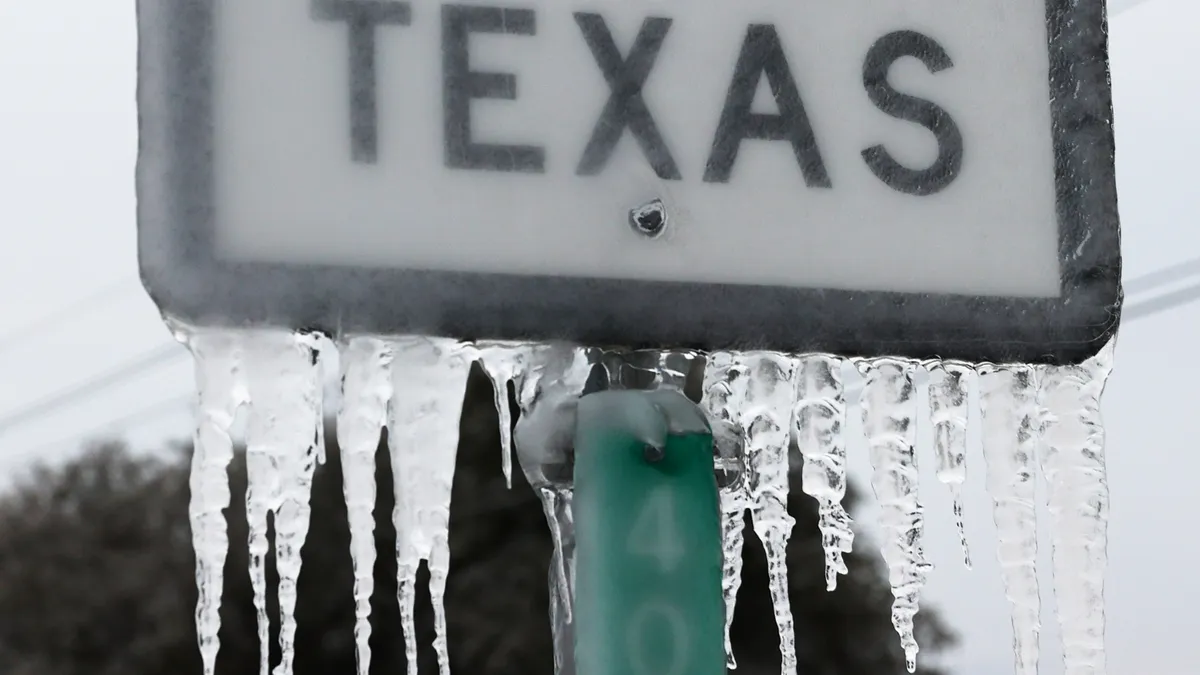Dive Brief:
- The Public Utilities Commission of Texas (PUC) on Thursday will consider weatherization requirements for generators and transmission providers, following February's freeze and subsequent days of rolling blackouts that led to the deaths of more than 150 people.
- If approved, the rules would require utilities to "fix any known, acute issues that arose from winter weather conditions," and for high ranking company officials to file notarized statements that the work has been completed.
- Regulators are also expected to discuss possible changes to the state's wholesale market design, but observers say no decisions are likely. "I don't know if we are going to see a full proposal," Allison Silverstein, an independent consultant working with the American Council for an Energy-Efficient Economy (ACEEE), said at a Tuesday event discussing the Texas market. "I'm not sure they're there yet. ... they have been in learning mode."
Dive Insight:
The staff proposal filed on Monday is just the first of two batches of weatherization requirements the PUC will consider.
The rule regulators could vote on Thursday would require generators to "implement winter weather readiness recommendations" that were identified in a 2012 report on extreme weather, conducted by Quanta Technology following a winter event the previous year. It would also require transmission service providers to implement recommendations from a 2011 report on outages in the Southwest, prepared by the Federal Energy Regulatory Commission and the North American Electric Reliability Corp.
Recommendations from the 2011 report ultimately became voluntary recommendations for utilities, but after February's disaster there are widespread calls for change. FERC Chairman Richard Glick in September called for mandatory weatherization requirements, and said, "I guarantee you that this time [the commission] will not permit these recommendations to be ignored or watered down."
At the Texas PUC, a second phase of weather emergency preparedness reliability standards will be developed "in a future project," staff's proposal says. Those standards "will consist of a more comprehensive, year-round set of weather emergency preparedness reliability standards." The Electric Reliability Council of Texas and the Office of the Texas State Climatologist are currently conducting a "robust weather study," staff said, to inform those rules.
Also on the PUC agenda for Thursday is a discussion of possible wholesale market changes to address the winter failures. Groups have filed comments and proposals, with generators focused on increasing revenues to ensure reliability.
Calpine, for instance, recommended the PUC modify the wholesale market's operating reserve demand curve, which helps set prices in times of scarcity, "to ensure it produces revenues sufficient to attract and retain dispatchable generation."
Likewise, Exelon Generation said adjustments to the demand reserve curve would help smooth market volatility, which "benefits generators by providing more predictable revenues, which contributes to long-term resource adequacy."
Berkshire Hathaway Energy and Starwood Energy Group have each proposed building about $8 billion in new generation.
Consumer groups, however, have pressed for Texas regulators to consider more solutions that could help lower customer bills and provide year-round benefit. Seven residential energy efficiency and demand response programs deployed over five years could lower summer peaks by 7,650 MW and winter peaks by 11,400 MW, according to a new report from ACEEE. That could eliminate the need for new generation, the group says.
Ultimately, experts agree Texas needs its dispatchable generation to meet power demand. They also say the benefits of customer-side programs are too big to ignore
According to ACEEE, residential programs would have a five-year total cost of about $4.9 billion, or 39% less the proposed gas plants.
When regulators meet Thursday, "I'm hoping that they will try to layer multiple options, many, many options," Silverstein said. "There are no silver bullets here, I think they're going to pick a few favorites, and I hope they pick a bunch of them."














